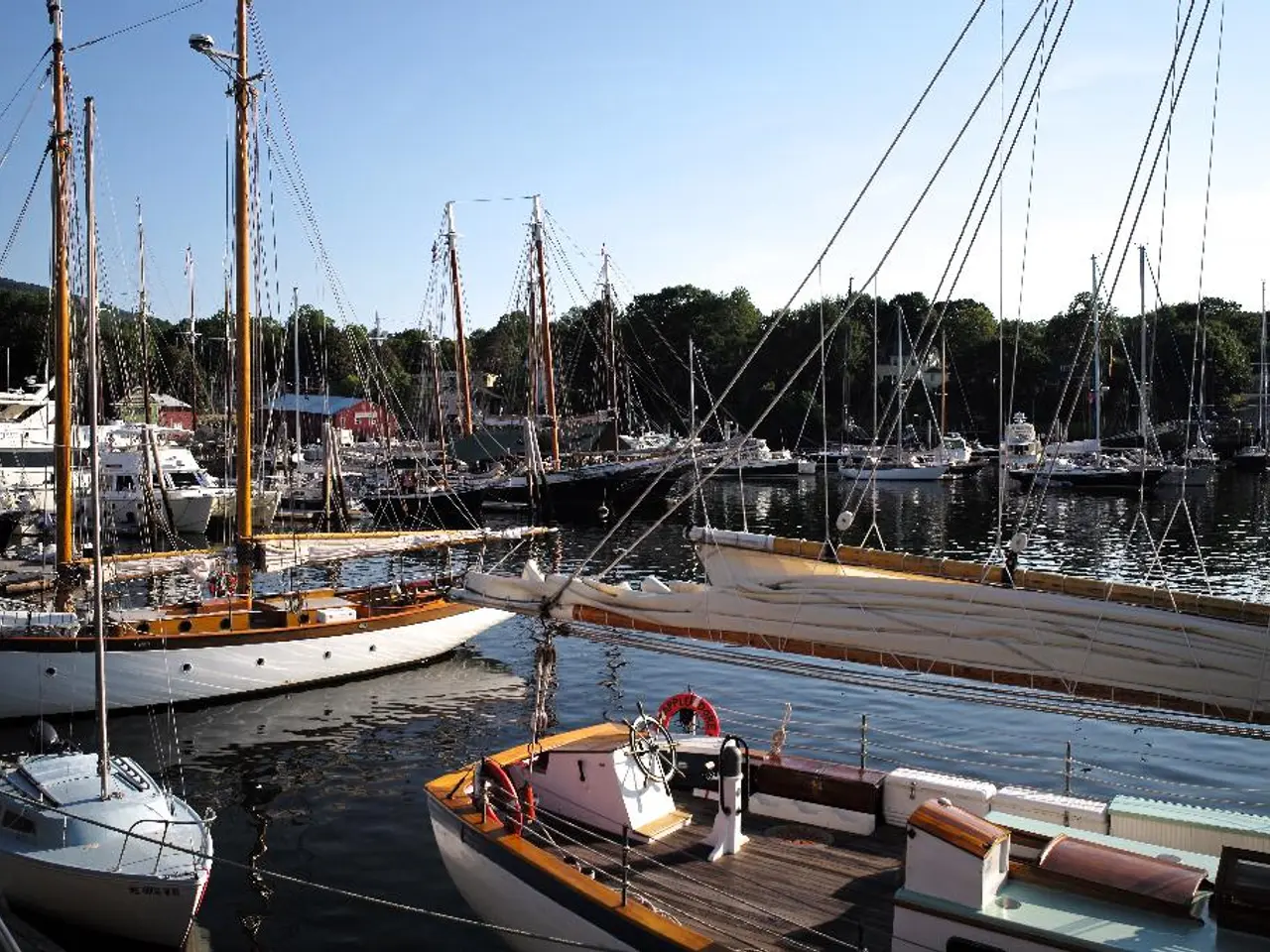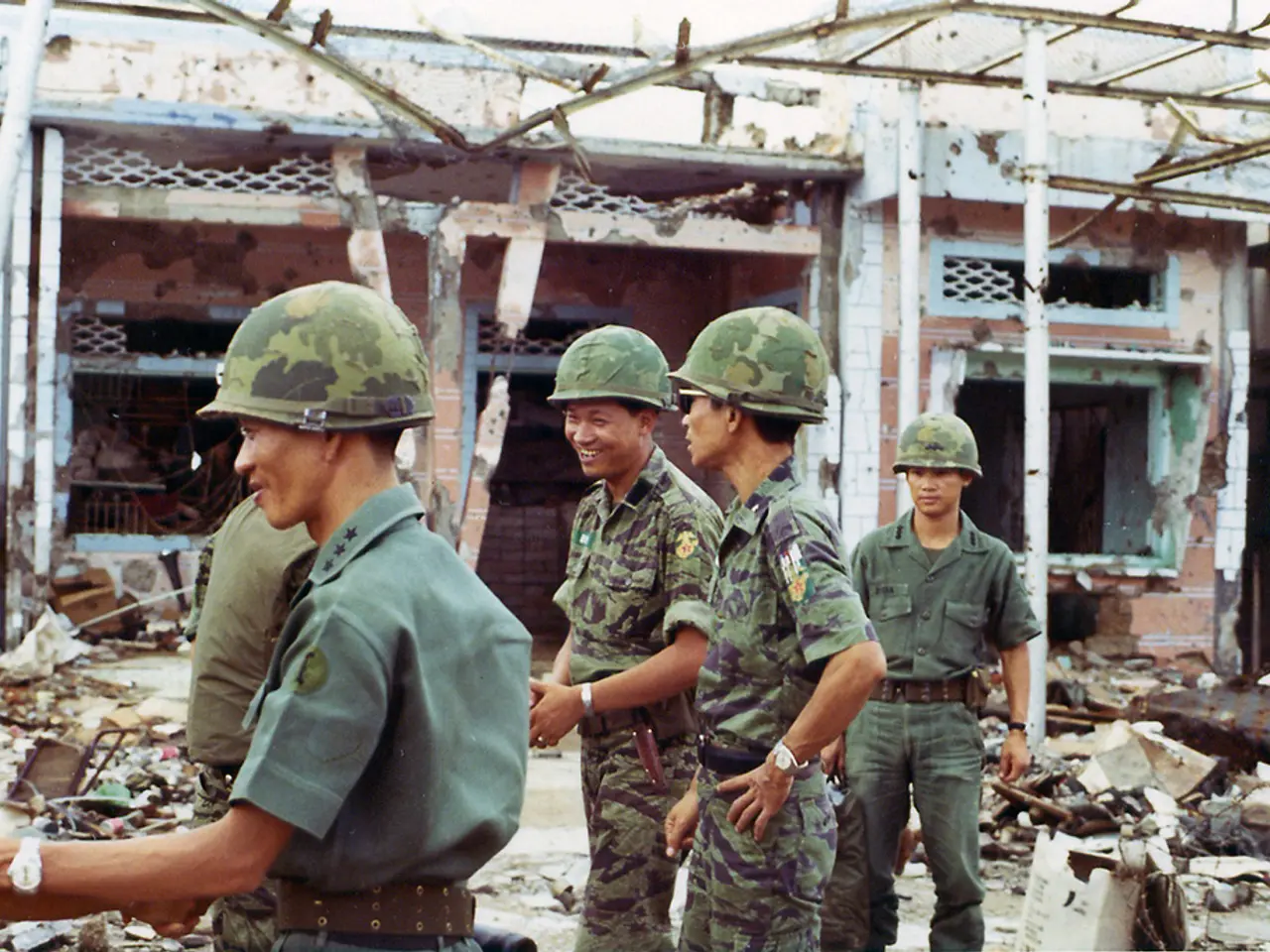Disruption at the Harbor (Part 1)
In a joint manifesto signed by 14 industry associations and organisations, the Philippines' Trusted Operator Program (TOP) under the Philippine Ports Authority (PPA) Administrative Order No. 04-2021 is under scrutiny. The manifesto, titled "United Call to Revoke PPA Administrative Order No. 04-2021," was issued on January 10.
The TOP program, launched in mid-2021, requires foreign containers to register in the Trusted Operator Program-Container Registry and Monitoring System (TOP-CRMS). The PPA's objective is to digitalise processes, make port operations efficient, and prevent port congestion, as well as support the Bureau of Customs (BOC) 90-day policy for re-exporting foreign containers. However, critics argue that the program violates the Philippine Competition Act and President Duterte's Administrative Order No. 44, Series of 2021, also known as the National Competition Policy.
One of the objectives of PPA AO No. 04-2021 is to provide real-time monitoring of containers, a task already being done by the Bureau of Customs. The TOP-CRMS, according to the Supply Chain Management Association of the Philippines executive director Corazon Curay, "does not add value," but only adds to cost and processes. Business groups have expressed disagreement with PPA Administrative Order No. 04-2021, citing potential negative impacts on port operations and the economy, lack of legal basis, and contradiction with ease of doing business and trade facilitation.
Seaports play a crucial role in global commerce, handling over 80% of global trade by volume and more than 70% of its value. In April 2021, a local blockchain-based logistics joint venture company won the P900-million procurement contract for TOP-CRMS and the Empty Container Storage Shared Service Facility (ECSSSF). The relationship between the Philippines and SGS soured, leading to a costly arbitration.
The relationship between the PPA and customs agencies has been a subject of debate. The PPA's TOP is complementary rather than redundant or outside scope, as it supports operational efficiency and safety at ports but does not replace the BoC’s legal and regulatory powers over cargo inspections and customs enforcement.
The Philippines has a history of corruption and smuggling in its ports. In 2014, a truck ban was implemented in Manila to ease traffic congestion but was later lifted. The Philippine Association of Meat Processors Inc. (PAMPI) has also expressed indignation, stating that the AO imposes an additional financial burden on the industry and requires importers to pay for container registration and monitoring, which they argue is unwarranted.
PAMPI suggests a more well-thought-out solution, devoid of suspicion, and questions why the government seems oblivious to the 2016 proposal of the Japan International Cooperation Agency (JICA) to transfer operations of the Port of Manila to the Batangas International Port. JICA estimates that operating costs would be relatively lower if vessels were docked in Batangas City.
The TOP program is currently under review, and the PPA is expected to address the concerns raised by the industry groups. The outcome of this review may have significant implications for the future of port operations in the Philippines.
The TOP program, aimed at digitalizing port processes and preventing congestion, has been met with criticism by business groups, who argue it violates the Philippines Competition Act and adds unnecessary costs.
Seaports, handling a majority of global trade, are crucial for the economy, and the TOP program's current review may have significant implications for port operations in the Philippines.







